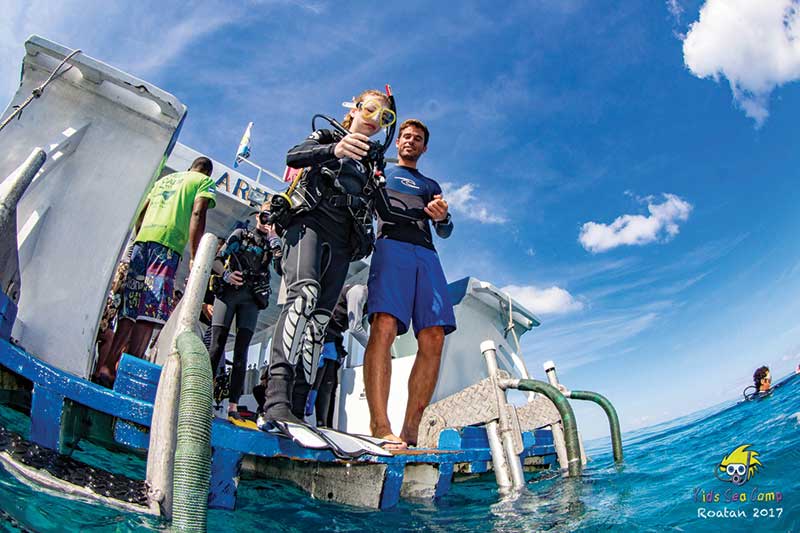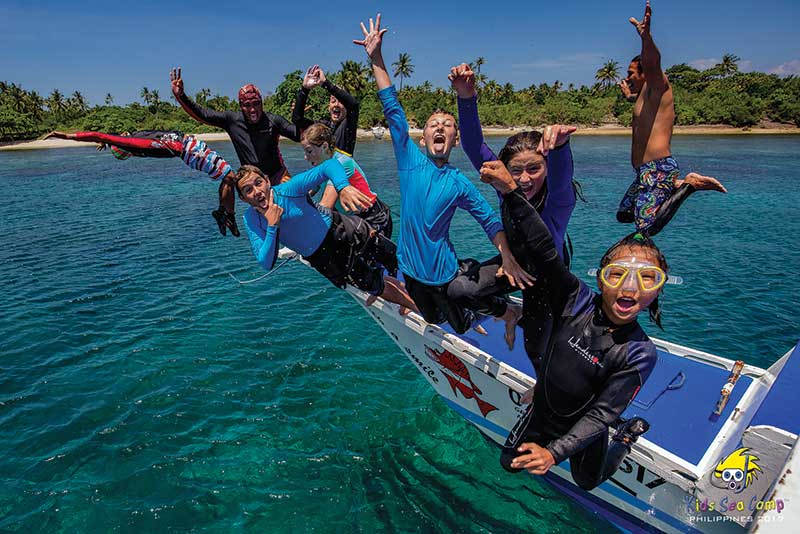Be Prepared for your Next Liveaboard
By Margo Peyton

Researching your next liveaboard dive trip? Be prepared to ask some tough questions. The tragic accidents that shook the liveaboard industry in 2019 served to remind us that there is no single set of standards that must be followed by all liveaboards around the world. Make no assumptions and do your homework to minimize personal risk and maximize your family enjoyment of what—with a little up-front research—should be a fabulous dive vacation.
It is your responsibility to be a competent diver. So the first questions to ask are of yourself: Are you fit and prepared, both physically and mentally, for liveaboard diving? Are you qualified for the type of diving that is being offered? If the answer is yes, then you can start asking questions of the operator.
Ask about dive gear needs, weights, types of boats, and conditions. Ask what time of year is best for that destination. Make sure that you are comfortable with the guest-to-staff ratio onboard (number of guests versus staff). Personally, I don’t dive on boats with more than 16 passengers; I don’t like shared bathrooms; and I don’t ever go on boats that don’t offer professional, active, rescue-trained and up-to-date divemasters (DM) or instructors in the water with me.
Liveaboards with kids
I am very strict on my DM to passenger ratios when it comes to family and kids. My minimum is one DM to every five certified divers in the water. It’s important that you feel comfortable with the liveaboard and in the conditions in which you are going to be living and diving.
When you arrive on board, request a fire drill and make sure systems and alarms are working. Don’t just assume they are. Ask to see both sides of emergency exits (i.e. not just the emergency door, but also the means of egress beyond). Have the staff show you how emergency exits open by demonstrating them, so you can make sure they are not blocked or painted shut and working properly and easily. Know where the life jackets are and know where the exits from your cabins are. Do a little research and find out how many deaths or accidents the operator your thinking about booking with has had. (Scubaboard, Under Current, and DAN are a few good resources).
Make sure you book with an experienced, trustworthy agent. This is especially important when you have kids along on the trip. Your travel agent will be your lifeline if things go sideways. I am available 24/7 to my clients. My cell is on my card and, believe it or not, I have made myself available to clients in trouble on trips that were not even booked through me!
Safety protocols
In 2019 there were some unfortunate and rare accidents in the liveaboard industry, which demonstrated the need for strong emergency procedures.
I’ve generated a guideline of safety questions to ask, derived from my 30 years of expertise taking families and kids on both land-based and liveaboard trips around the world, as well as from the experiences of some close friends who have survived close calls:
- How many passengers are accommodated on your boat(s), and in how many cabins?
- How many crew are on the boat? Are they all rescue-trained and proficient with fire drills?
- Do you have an emergency contingency plan in place and may I have a copy?
- Are your boats inspected and current with all licenses and inspection requirements?
- Do you have a sprinkler system and fire detection system on board?
- Do you allow charging devises in individual cabins and are Lithium batteries allowed on your vessel?
- Do you have fire extinguishers and alarms in all cabins and rooms?
- Do you have a mandatory security night watch aboard your boats?
- Is there is an emergency contact list for guests with contact both locally and in the main corporate office?
- What are your ratios of divers in the water to staff? Are the dive staff professional, certified dive masters & instructors?

Be ready
The next thing to consider is what if the worse case scenario happens. What can you do to be ready?
- Remove any two-factor authentication from your email account. If you lose your cell phone, you will not have access to your verification code and will be locked out of your email account when you try to log in from a public IP or foreign device not recognized by your server or Google.
- Create your own safety deposit box or emergency folder in the Cloud. Put copies of your passports, dive cards, DAN insurance or other, copy of your airline itinerary and the emergency contacts for you personally as well as for the airline, and liveaboard or resort, and agent your working with. We all live in a push button world and, with smart phones, the simple act of remembering numbers of our family and business is a thing of a the past. If you lose your phone and computer you lose it all.
- Keep a small emergency dry bag with you at all times. Keep it on your nightstand at night and keep it in your dry bag on your dive boat. Inside keep: your cell phone, your passport or copy of your passport, copy of your airline ticket, a note with your most important numbers, a small amount of cash, and one credit card. If you have kids with you, make sure you also have their documentation (passports, tickets, permission from other parent, etc.)
- At night, make sure in your dry grab bag you have: 1 pair of underwear, shirt, shorts, and life-saving meds you can’t go without. This should not be large. You do not know the conditions you may be in. If your kids are old enough and responsible, they should have their own. If they are too young, you will need their necessities in your grab bag or in one that you keep with yours.
- Send a link to your emergency folder to your emergency contact at home – someone who is not traveling with you.
- Insure your dive gear and camera equipment. It can cost upwards of $14,000 to replace and take months to be paid for.
- Make sure you have DAN trip and Dive insurance, or the equivalent. Rescue flights and chamber rides can cost from tens to hundreds of thousands of dollars in remote locations.
- Make sure that the people with whom you are traveling have access to your emergency information to assist you if you are the person in trouble.
- Make sure the organization you choose to travel with has great reviews on line. Take the time to look through them.
- Pay it forward. If you have a great experience with an operator and they do a top-notch job, share it with others and post on Scuba Board, dive magazine websites and your multi media. Let other divers learn from your experience.
With a little thought, some planning and—of course—the spirit of adventure, your next dive trip with the family should be one that makes memories for all the right reasons!
Margo Peyton is the founder of Kids Sea Camp and Family Dive Adventures, recipient of the DEMA Reaching Out Award, Woman Divers Hall of Famer, and the PADI Award of Excellence in training and education, with over 6,000 certified kids and zero dive accidents! For more: www.familydivers.com







